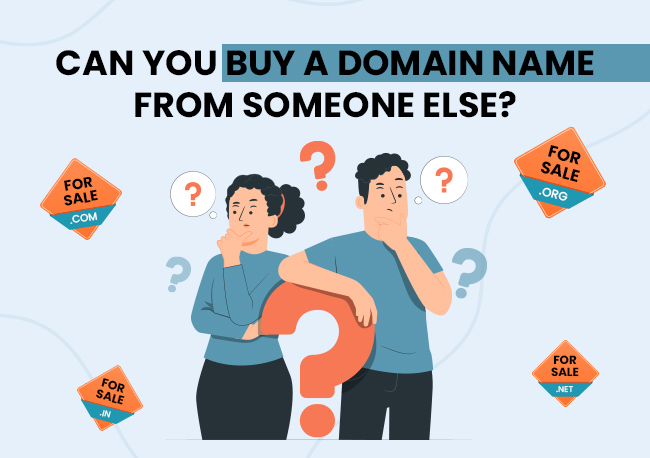
Domain names and online businesses are such a buzz nowadays, that you would almost act an odd- man out if you do not have one! Most of us end up thinking that domains are plain names with a ‘www.’ prefix and a ‘.com’ suffix; that need to mandatorily identify with the business name.
Nothing could be far from the truth.
A domain is a word or a string of words that identifies the IP address which has been used to set it up.
That’s a bit complicated. Let’s simplify it.
When you decide to create an identity for yourself on the web, you need to name that identity. Computers identify this identity in the form of numbers, more specifically, IP addresses.
But it is way too difficult for the human brain to keep a record of a large number of domains, all in numerical forms. That would amount to remembering something like….432.665.64, 143.985.77.66 and the like.
This is where domain names come into play.
It is way easier to remember names than numbers. And it gets all the better when this name matches the name of the business! Ease to remember and brand awareness both come hand in hand with domain names that are identical to business names!
However, since most generic business names have already been booked up on the internet as domain names, it is sometimes impossible for businesses to get the names of their choice.
Under such conditions, it is advisable to go for names that revolve closely around the business domain or industry domain. The idea is to make the name reasonable to people and relative to the business in question.
Another way out here, are TLD’s or Top Level Domains. TLD’s are the highest hierarchy of the domain syntax. You can find a TLD at the extreme right of your domain name. Serially, to the left come Mid Level Domains and to the farthest left is the machine name (most commonly, www).
There is also this concept of using country-specific Level Domains or 2LDs after the TLD. Examples are .co.uk or .org.dk. This tends to make the origin of business, clearer to the audience.
.com, .org, .info, .co are common TLD’s, conventional ones actually. TLD’s have, however, evolved a lot into more niche ones, to help businesses cope with scanty domain names. Industry-specific TLD’s are now available and ICANN has been known to empower various registrars to trade in these TLD’s. We
prefer to call them premium TLD’s.
In case you want to spare yourself the extra budget of buying premium TLD’s, you can go for 2LDs.
Related Blog: What is a Dedicated Server? Advantages of Dedicated Server Hosting
Once you buy a domain, it becomes the identity of your online business till the time it expires. Ritualistically, you have to renew your domain name with your registrar every year. Once it expires, it goes open for sale.
It would make sense here to state that if you have a domain, you don’t necessarily need to host it. Hosting is an entirely different thing and it would mean you have rented some of the web space.
Buying a domain simply means you are reserving the name for yourself so that you have a better chance to brand your online business with a suitable name.
Many people choose to buy the same domain name with different TLD’s. This relieves them from the worry of having to share the same business name with someone else who has a different TLD.
So even if you have no plans putting up a website, and getting it hosted right now, you would definitely want to buy a few domains for your business!
The world is already running short of names!
Grab yours before you fall into the whirlpool of domain famine!



